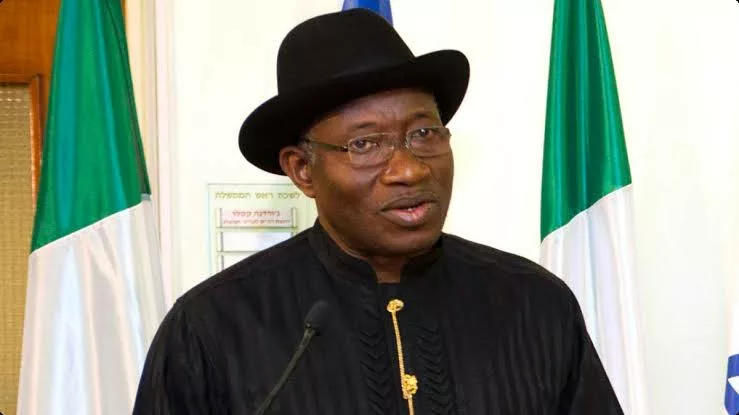Former President Goodluck Jonathan is the latest national leader to wade into the raging political feud in River State between Governor Siminalayi Fubara and his predecessor and estranged godfather, the Minister of the Federal Capital Territory (FCT), Nyesom Wike.
On May 20, during the flag-off of the Trans-Kalabari Road in Obio/Akpor Local Government Area, Jonathan described the political tension in Rivers State as worrisome and pleaded with both Governor Fubara and the FCT minister to give peace a chance in the interest of the people of Rivers State.
He told them that it was critically important for former governors and their successors to understand that they must work together for the collective interest of the citizens of the state. Also, he challenged them to show their love for Rivers people, put aside their differences and pull together in one direction in matters that concern the ordinary citizens of the state, and to do only things that project, rather than undermine, the state.
“When two elephants fight, the grass suffers. And if you continue to fight, Rivers people will suffer and we don’t want Rivers people to suffer,” he reminded them.
Governor Fubara and Wike, have been engaged in a political feud since October last year when some lawmakers in the Rivers State House of Assembly, believed to be protégés of Wike, made an attempt to remove the governor by initiating an impeachment process, with four lawmakers on the governor’s side.
That move led to the bombing of a section of the House of Assembly complex and its subsequent demolition by the Rivers State government, prompting the state legislature to relocate their plenary to the conference hall in their official residential quarters.
The political tension reached fever pitch when 27 members of the House of Assembly loyal to Wike defected to the All Progressive Congress (APC) and their seats were consequently declared vacant, according to the constitutional provision, with three lawmakers, backed by Fubara, taking over the legislative business of the Assembly after a court stopped the 27 pro-Wike lawmakers from parading themselves as members of the House.
This prompted President Bola Tinubu in December last year to invite the two parties to Aso Rock where they signed a peace deal to cease all hostilities. The deal required the lawmakers to stop impeachment proceedings against the governor, and for the defected lawmakers to resume their seats, as well as the resigned commissioners loyal to Wike to return to office in Fubara’s cabinet, among others.
However, the governor and the state lawmakers continued to have frosty relations, and it soon became obvious that the presidential intervention did not resolve the crisis. Matters boiled over once again when a clearly frustrated Fubara declared that the opposing lawmakers were nonexistent during a visit to him by Ijaw leaders in neighbouring Bayelsa State, which prompted an APC state party official to tell the lawmakers to impeach the governor.
Like former President Jonathan and President Tinubu, a prominent leader in the Niger Delta and Ijaw leader, Chief Edwin Clark, had also in April this year called for a cessation of hostilities in Rivers State. In an open letter, he reminded the federal government and the leaders of the two major political parties in the country, All Progressives Congress and Peoples Democratic Party, of the consequences of allowing Rivers State to descend into anarchy.
Also in April, former Rivers State Governor Dr Peter Odili waded into the political conflict. In his own submission, he said that having won election as the governor of the state, Fubara was the current political leader of the state and added that his administration was doing well for the people. Dr Odili is a known ally of Wike but is believed to be against the idea of removing the governor from office. Apart from these, other political actors have largely spoken in support of one camp or the other.
As a newspaper, we add our voice to those who have called for a cessation of hostilities in Rivers. Jonathan’s and Edwin Clarke’s position that if Rivers State is destabilised, it will have serious consequences for peace, stability and economy of not only the Niger Delta but the nation as a whole nation is not in doubt.
Jonathan’s call is a timely reminder to both Fubara and Wike that they have an absolute responsibility to put the interest and wellbeing of the people of the state, and the nation at large, above their own personal interest.
They can start by resisting the temptation to throw barbs at each other at public fora. Such conduct is unbecoming of persons holding such high positions in society. Both political leaders should heed the call of Jonathan and others to sheathe their swords in the interest of the people. What the people want from them is to use their high positions to find solutions to their existential problems, not to distract themselves with endless bickering.




